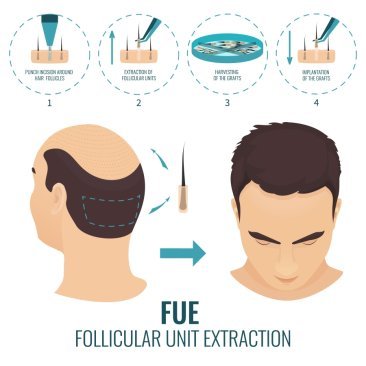Overview
Are you losing hair? You're not alone. Around 80% of men and 25% of women around the world experience this. But there's good news. The business of hair transplants is growing fast and might be worth $30.13 billion by 2031. India is leading this growth.
In India, they're not just doing hair transplants, they're really good at it. About 80-90% of these surgeries in the world are done in India. People from Europe to Australia choose India for these surgeries because of the great technology, excellent clinics, and affordable prices.

Exploring hair restoration solutions? India's excellence awaits you.

Moreover, India is renowned for its excellent post-transplant care. The country provides high-quality services at remarkably low prices, including personalized treatment plans and round-the-clock assistance, ensuring a positive experience for patients.
Now let's explore the different types of hair transplants available to address various hair loss concerns.
Your health is too important to ignore – schedule your appointment now.
Which Hair Transplant is Best in India?

A hair transplant surgeon is the ideal person to take you through the entire surgery based on your amount of baldness and requirements. They can advise you on the best type of hair transplant for you, as well as the cost, benefits, and adverse effects.
The following are the types of hair transplant procedures available in India:
Procedure |
Description
|
FUT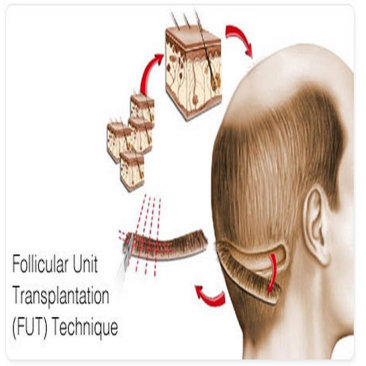 | FUT enables the transplanting of the greatest number of grafts in a single session.
Procedure Time: 6-7 hours Recovery Time: 10-20 days
|
FUE
| Follicular units are extracted one at a time from the donor site, which is commonly the back and sides of the head.
Procedure Time: 2-7 hours Recovery Time: 2 weeks
|
DHI 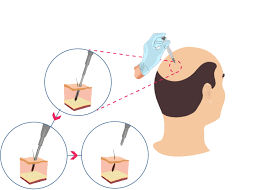 | The DHI Hair Transplant, also known as direct hair implantation, is a modified variant of the FUE hair transplant technique in which extraction is followed by implantation at the same time. Procedure Time: 6-7 hours Recovery Time: 20 days |
PRP | PRP is obtained by withdrawing the patient's own blood and spinning it at a high concentration. In a centrifuge, platelets are separated, and only platelet-rich plasma is collected. PRP is then injected into the scalp area using a microneedle.
Procedure Time: Approx 90 minutes Recovery Time: 3-4 weeks |
Robotic Hair Transplant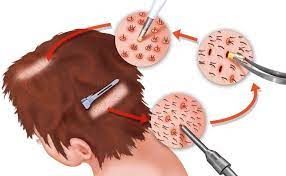 | It is a process in which a robot extracts hair grafts with pinpoint accuracy. The Robot will not perform hair implantation. Only the surgeon will perform this procedure.
Procedure Time: 4-8 hours Recovery Time: 5-6 days |
Now, let's find out about the best doctors to provide this treatment for you!
Best Surgeons for Hair Transplants in India
Surgeons in India are in high demand when it comes to hair transplants. They are qualified and have access to the world's best practices. Furthermore, the diversity of patients that visit India boosts their experience and confidence.

Hair Transplant Surgeons in Mumbai
Dr. Vinod Vij
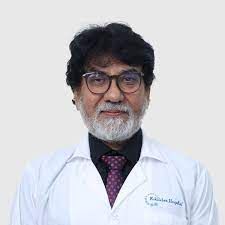
- 35 years of experience
- Performs scar-less and bloodless hair transplant, known as FUE (Follicular Unit Extraction).
- Dr. Vinod Vij tries innovative experiments to improve the results for his patients.
- Well known for his good results in Follicular Unit Transplants.
Dr. Rajesh Rajput
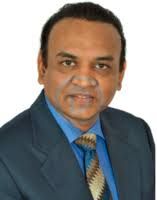
- 32 years of experience
- Conducted 5000+ hair transplants and has treated 30000+ patients to date.
- Performs the latest state-of-the-art Hair transplant surgery in India.
- Heads the team of highly qualified and skillful Hair transplant surgeons.
Click here to find out more about Hair transplant surgeons in Mumbai
Hair transplant surgeons in Delhi
Dr. Arvind Poswal
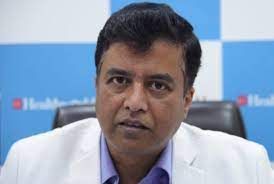
- 25 years of experience
- Inventor of Stitch-less FUSE transplant technique.
- Recognized as one of the world's most versatile hair restoration doctors.
Dr. Nandini Dadu

- 10 years experience
- Expertise in Hair & Scalp Treatments
- Focuses on achieving natural and superlative hairlines
Click here to find out more about Hair transplant surgeons in Delhi.
Hair transplant surgeons in Chennai
Dr. S. Nithyaraj Prakasam
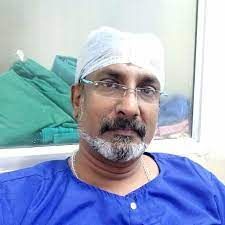
- 30 years of experience
- Dr. S. Nithyaraj Prakasam specializes in Hair Weaving & Bonding, FUE Stitch Less, and FUE Scar Less Methods.
- He is a specialist in performing hair transplant surgery.
Dr. N. Ashok Kumar

- 18 years of experience
- Dr. N. Ashok Kumar offers a number of medical services including dermabrasion, Peel, Polishing, Lasers, etc., along with hair transplant services.
Click here to find out more about Hair transplant surgeons in Chennai.
Hair transplant surgeons in Bangalore
Dr. Venkataram Mysore
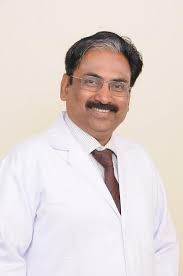
- 38 years of experience
- He is one of the foremost dermatologists in India and the world
- Dr. Venkataram Mysore specializes in Dermatologist, Hair Transplant Surgeon, and Cosmetologist.
Dr. Sreedhar Reddy Pothula

- 17 years of experience
- Dr. Sreedhar Reddy Pothula offers a number of medical services Hair Transplant Surgeon, Oral, And MaxilloFacial Surgeon
- He was a gem of doctors who graduated from JJMMC and CODS College, one of the most respected medical institutions in India.
Click here to find out more about Hair transplant surgeons in Bangalore.
Hair transplant surgeons in Hyderabad
Dr. Harikiran Chekuri

- 19 years of experience
- Dr. Harikiran Chekuri has performed more than 6000+ successful surgeries, including face, and body contouring, breast surgeries, and hair transplants.
- He is an expert in hair restoration methods like FUE, Bio-FUE, Regenera Activa Treatment, etc., Using cutting-edge technology and pioneering treatments.
Dr. Ravi Chander Rao

- 17 years of experience
- Dr. Ravi Chander Rao is a board-certified plastic surgeon and has performed 10000+ plastic surgeries successfully.
- He is a specialist in performing hair transplant surgery.
Click here to find out more about Hair transplant surgeons in Hyderabad.
Learn about the hair transplant clinics here
Embark on a hair transformation journey like no other by choosing India for hair transplant treatment, where skilled surgeons, advanced infrastructure, affordable prices, and a plethora of options await your crowning glory.
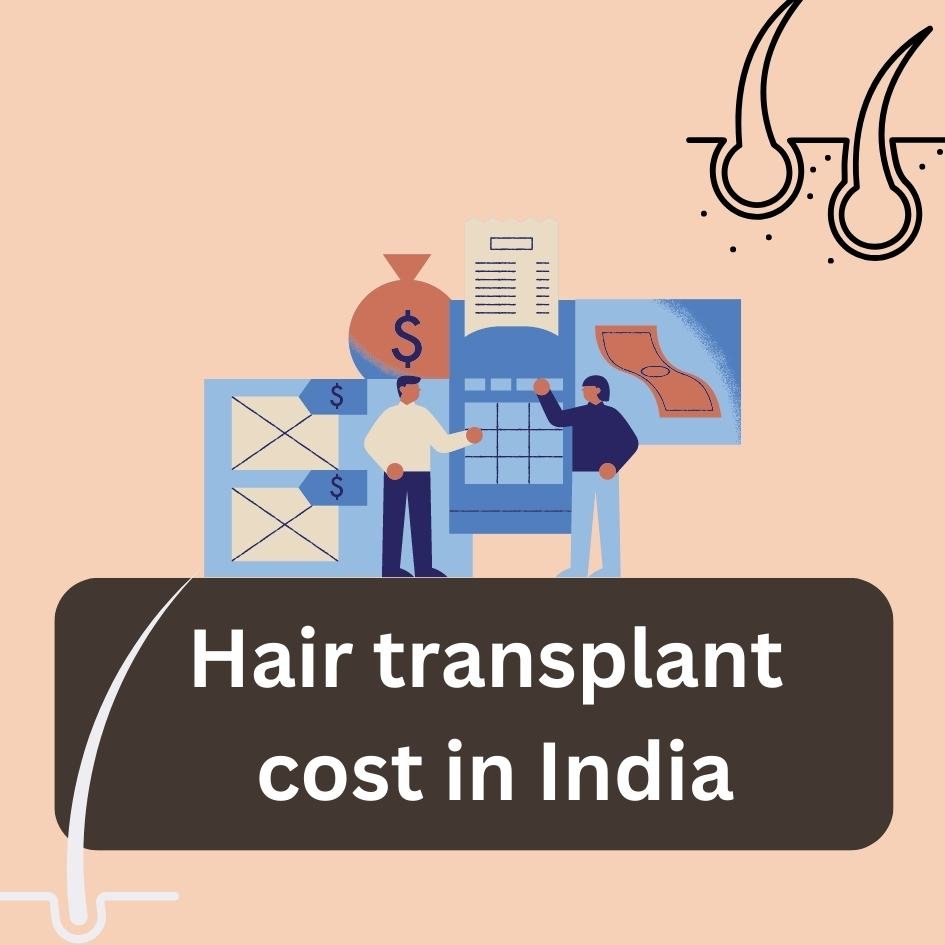
What is the Cost of Hair Transplant in India?
Ever noticed how the cost of medical procedures can skyrocket in wealthy nations? Especially when those procedures, like hair transplants, aren't covered by insurance. And, let's face it, in places like Western Europe and the US, hair transplant costs can be a staggering four to five times higher than in other parts of the world.
Now, here's the game-changer: India.
Why? Well, let's dive into the numbers. In India, a hair transplant for 1000 grafts typically comes in at a mere Rs. 25,000 (roughly $313). And the norm? Pricing is generally calculated on a per-graft basis. Sounds fair, doesn't it?
Wondering about consultation costs?
They're just as reasonable. Depending on the clinic, you're looking at a range from Rs. 500 ($7) to Rs. 1500 ($20).
Doing the math, a comprehensive hair transplant in India, including the consultation, varies between Rs. 25,000 and Rs. 2,65,300 ($313 to $3322).
Your well-being is our priority - call us to book your appointment today
Let's check out the cost of hair transplants in different cities of India.
Cities
| Cost |
Mumbai | $354 -$3754 |
Delhi | $341- $3621
|
Bangalore | $335-$3555
|
Chennai |
$307-$3256
|
Kolkata | $272- $2890 |
let's check hair transplant costs in different countries around the world.

Country
|
FUE Cost per graft |
FUT Cost per graft |
India |
Rs.30-45 ($0.40-$0.60) |
Rs.25-35 ($0.33-$0.46)
|
USA |
Rs.695-1182 ($10-17)
|
Rs.209-348 ($3-5) |
Europe |
Rs.209-417 ($3-6)
|
Rs.313-716 ($4.5-10.3) |
Turkey |
Rs.209-278 ($3-4)
|
Rs.105-140 ($1.5-2) |
Let's find out what are the factors responsible for the fluctuation in hair transplant costs in India.
Read further!
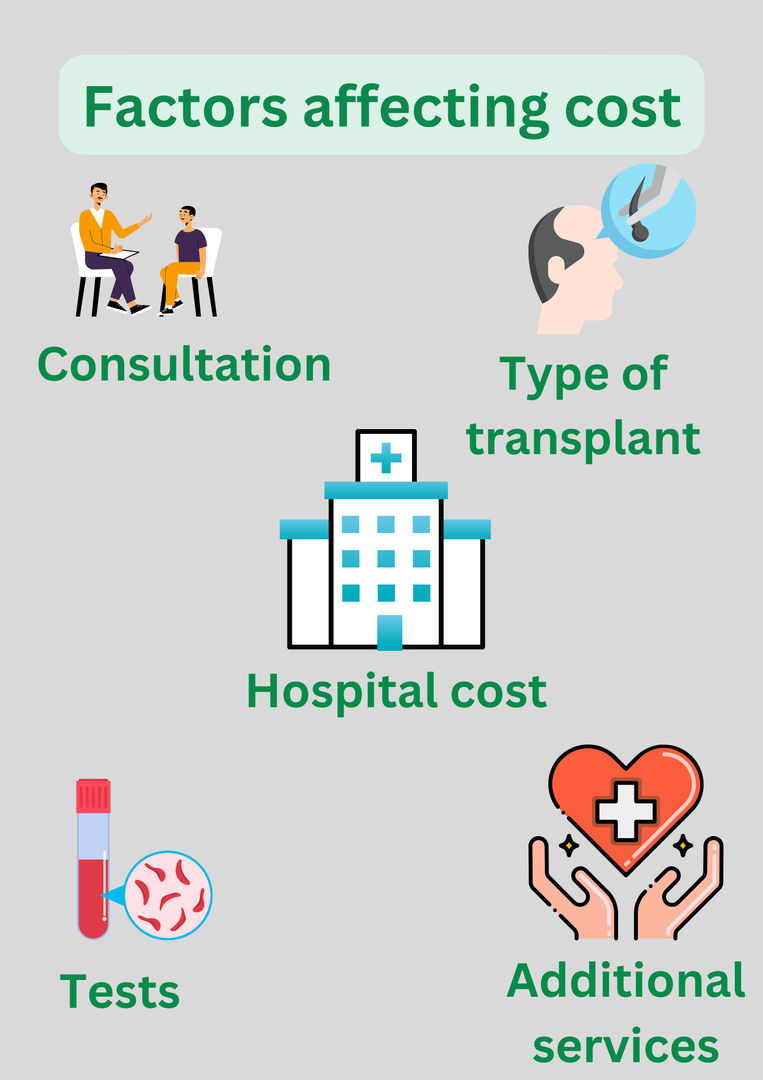
Factors affecting hair transplant cost in India.
The cost of a hair transplant in India varies based on a number of factors.
The following are some of the elements that might affect the cost of a hair transplant operation in India:
- Clinic reputation and expertise: When compared to less well-known clinics, established and reputed clinics with skilled surgeons prefer to demand greater rates for their services.
- The technique used: The prices connected with different hair transplantation techniques, such as Follicular Unit Transplantation (FUT) and Follicular Unit Extraction (FUE), vary. Because FUE is a more time-consuming and labor-intensive method, it is often more costly.
- Number of grafts necessary: The cost is affected by the level of hair loss and the number of grafts required to obtain the desired outcomes. The more grafts required, the greater the expense.
- Location: The cost of living and operational expenditures in different cities or areas of India might change, resulting in pricing variances for hair transplants. Costs in major metropolitan regions or cities may be greater than in smaller towns or rural areas.
- Additional services and facilities: Some clinics may include post-operative care, drugs, or complementary therapies. These additional services and facilities may have an impact on the entire cost of the hair transplant operation.
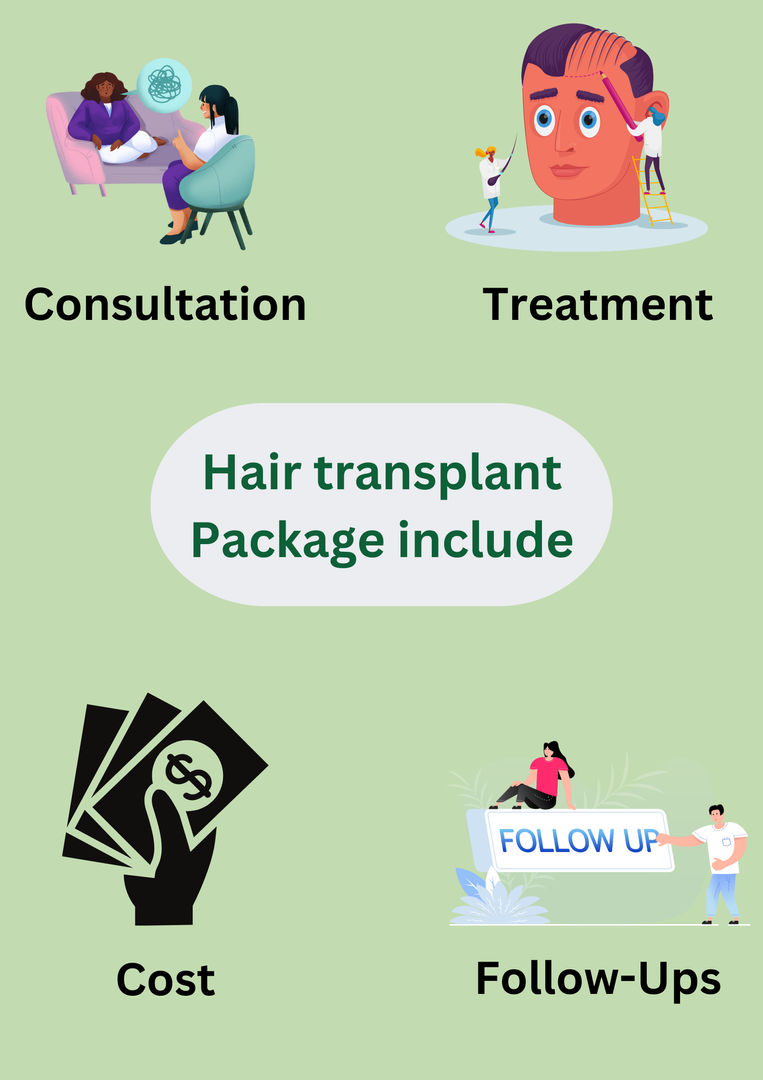
What is the package of hair transplants in India?
A typical hair transplant package in India may include:
- Consultation and evaluation.
- Hair transplant surgery.
- Local anesthesia.
- Experienced surgeon and medical team.
- Required number of grafts.
- Pre-operative and post-operative medications.
- Follow-up consultations.
- Basic post-operative care instructions.
- Sterile operating environment.
- Refreshments during the procedure.
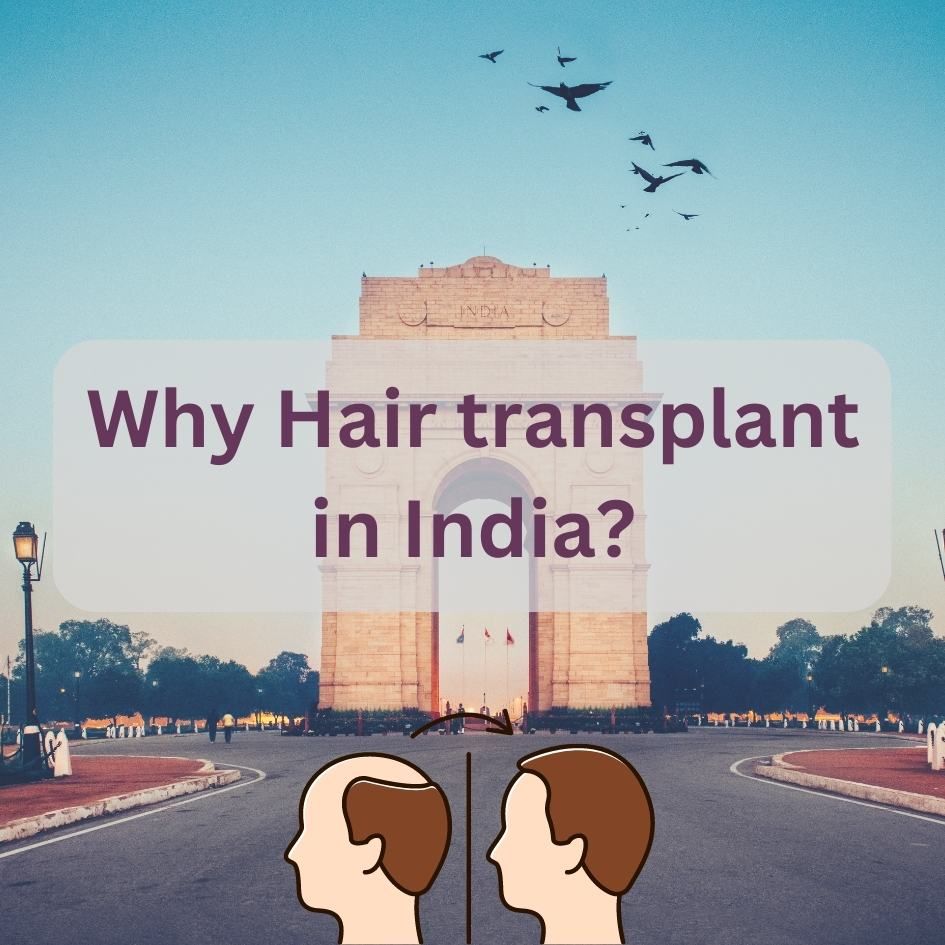
Why Choose India for Hair Transplant Treatment?
Hair transplant facilities in India are well-known throughout the world. Patients from all around the world choose the clinic that provides the best services and amenities. A few well-known clinics in India provide high-quality hair loss therapy. Hair transplantation in India is also reasonably priced. India's hair transplant cost is much more affordable than other countries.
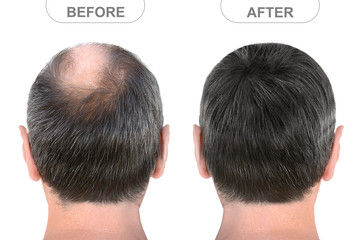
The following are some of the reasons why people choose India for hair transplant treatments:
- Skilled and experienced doctors:
There are only a few extremely qualified hair transplant doctors in India. In other countries, there are fewer patients, and the surgery is more expensive. As a result, Indian hair transplant doctors are favored above others. The experience of Indian experts ensures the safety of your hair transplant.
These specialists are the best at regaining a natural look after a hair transplant. Their skills have made these doctors famous all across the world.
- Well-known hair transplant clinics:
Some hair transplant clinics in India are well-known for providing high-quality services. People come to these clinics to get hair transplants as they produce the best results.
- Affordably priced hair transplants:
Hair transplants in other countries are prohibitively expensive. However, you can get a hair transplant in India that is both inexpensive and high quality. Hair transplantation is 5-6 times more expensive in other countries than in India.
- Availability of the latest procedures:
India is not lagging in terms of cutting-edge technology. FUE, FUE, BHT, and other advanced hair transplant methods are available in India.
- Success Rate of Hair Transplant:
The success rate of hair transplants in India is approximately 95-98%, and the survival rate of FUE hair transplant procedures in India is about 94-96%.
The number of transplanted hair follicles that result in permanent hair growth over time can be defined as the hair transplant survival rate.
Unlock a world of affordability and transformation with hair transplant costs in India!
Get ready to embark on a safe and reassuring hair transplant journey in India, as qualified surgeons and reputable clinics prioritize international standards for your peace of mind.

Take the first step to recovery. Get in touch with us for your treatment.
What is the success rate of hair transplants in India?
The success rate of hair transplant procedures in India can vary depending on various factors such as the skill and experience of the surgeon, the technique used, the extent of hair loss, the quality of the donor's hair, and individual factors of the patient.
In general, hair transplant procedures have shown to be effective in restoring hair for many individuals. According to various studies and reports, the success rates of hair transplant procedures worldwide range from 80% to 95%.
According to surveys and research, surgeons can perform FUT with success rates ranging from 95 to 98%, and in rare cases even 100%. With FUE, the percentage will be a little lower, possibly between 90 and 95%.
It's important to note that these figures are approximate and can vary.
How Safe is Hair Transplant in India?
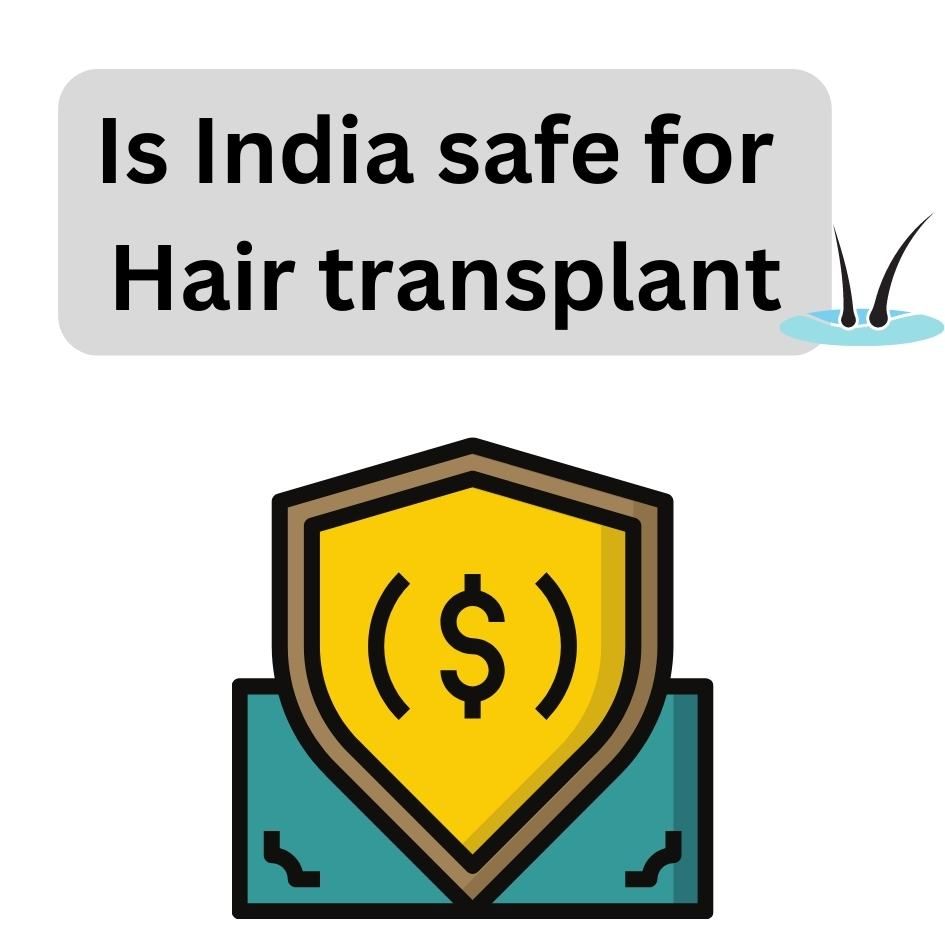
Hair transplantation has no adverse side effects. However, if there are any irregularities during the surgery, such as an overdose of medication, incorrect injection technique, or infection, these can lead to difficulties.
However, it's important to note that the safety of a hair transplant procedure depends on several factors, including the individual's overall health, the expertise of the surgeon, and the adherence to proper surgical protocols.
Here are a few key points to consider:
- Surgeon Qualification and Experience: It is crucial to choose a reputable and experienced hair transplant surgeon who is qualified and has a proven track record. Research the surgeon's credentials, reviews, and before-and-after photos of their previous patients.
- Clinic Accreditation: Ensure that the clinic where you plan to undergo the procedure is accredited and follows standard safety protocols. Look for certifications from recognized organizations or regulatory bodies.
- Technology and Techniques: Advanced techniques such as Follicular Unit Extraction (FUE) and Direct Hair Implantation (DHI) are commonly used in hair transplant procedures. These techniques minimize scarring and offer faster recovery. Inquire about the technologies and techniques employed by the clinic.
- Hygiene and Sterilization: The clinic should maintain high standards of cleanliness, sterilization, and infection control. This includes using disposable instruments, maintaining a sterile environment, and following proper post-operative care procedures.
- Pre- and Post-Operative Care: A reliable hair transplant clinic will provide thorough pre-operative consultations and evaluations to ensure you are a suitable candidate for the procedure. They will also provide detailed instructions for post-operative care, including medication, washing routines, and follow-up appointments.
- Patient Reviews and Testimonials: Read reviews and testimonials from previous patients who have undergone hair transplant procedures in India. Their experiences can provide valuable insights into the safety and quality of care provided by the clinic.
- Potential Risks and Complications: Like any surgical procedure, a hair transplant carries certain risks and potential complications such as infection, bleeding, scarring, and poor graft survival. It is essential to discuss these risks with your surgeon and understand the potential outcomes.

Please Note- Before undergoing a hair transplant in India or any other country, it is advisable to consult with a qualified hair transplant specialist who can assess your individual case, explain the procedure, and address any concerns you may have.
Does insurance have your back when it comes to hair transplants in India? Let's dive into the realm of coverage and discover the possibilities for your hair restoration journey.

Does Insurance cover Hair Transplants in India?
People have the misconception that hair transplants are covered by health insurance. Insurance for hair loss does not exist. Any health insurance company or organization does not cover alopecia. Any expenses or fees incurred for hair treatment are the individual's responsibility.
Any hair loss is not covered by health insurance. Many factors contribute to hair loss. The grafting approach is the most effective for hair loss.
Is hair transplant treatment within reach at government hospitals in India?
Let's delve into the realm of options and discover the availability of this procedure in the public healthcare system.
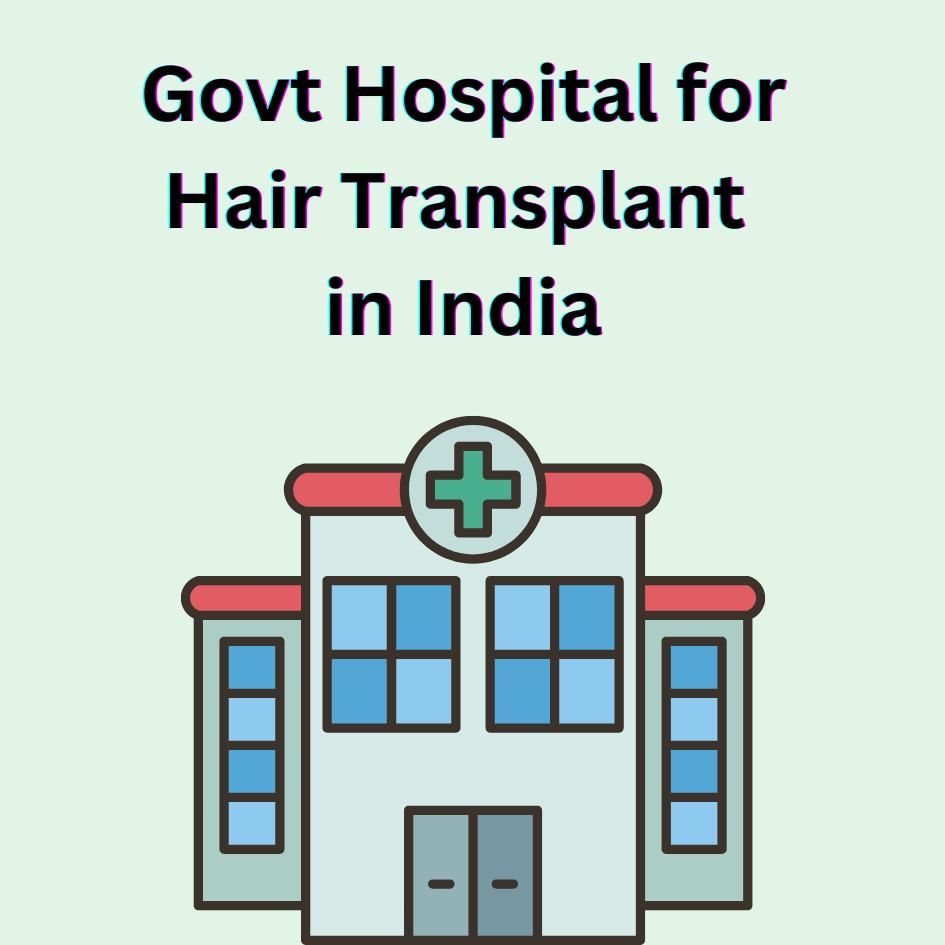
Is hair transplant in India available at government hospitals?
So, you're considering a hair transplant in India and wondering, "Are these procedures available at government hospitals?" Let's break it down.
The straightforward answer?
Yes, but with some caveats. Some government hospitals do offer hair transplant services. However, and this is crucial, their availability can be patchy. Why? Government hospitals are often front-liners, dealing with a broad spectrum of critical health issues. Given that hair transplants are generally elective and cosmetic, they might not be top of the list in the services they offer.
Imagine this:
Government hospitals might have hair transplant services under their plastic surgery or dermatology wings. But here's the catch: there could be long waiting lists. Plus, they may prioritize cases related to traumatic events, like burns or accidents, where hair restoration isn't just for looks but has functional or reconstructive purposes.
Now, if you're seeking specialized, state-of-the-art hair restoration, private clinics and hospitals might be your best bet. They usually come packed with advanced techniques, seasoned surgeons, and tailor-made care. The bonus? You'll likely find more flexibility in scheduling and comprehensive post-op care.
Ready to transform your look? Whether considering government or private facilities, ensure you do your homework. Understand the costs, wait times, and any criteria. After all, your decision should be as informed as it is confident.
Here are the things you should consider before going for hair transplant in India!!
read carefully!

Take charge of your health and your life. Contact us today!
Things to consider when going for hair transplant in India?
When considering a hair transplant in India, there are several important factors to keep in mind.
Here are some key things to consider:
- Research and Choose a Reputable Clinic: Look for a well-established and reputable hair transplant clinic in India. Read reviews, check their credentials, and inquire about the experience and qualifications of the surgeons.
- Surgeon's Experience and Expertise: Assess the experience and expertise of the hair transplant surgeon who will be performing the procedure. Inquire about their qualifications, years of experience, and specialization in hair restoration.
- Treatment Techniques: Familiarize yourself with the different hair transplant techniques available, such as Follicular Unit Transplantation (FUT) and Follicular Unit Extraction (FUE). Understand the pros and cons of each technique and discuss with the surgeon which one is most suitable for you.
- Before and After Photos: Ask the clinic to provide before and after photos of their previous patients. This will give you an idea of the quality of their work and the potential results you can expect.
- Patient Reviews and Testimonials: Look for patient reviews and testimonials to gain insights into the experiences of others who have undergone hair transplant procedures at the clinic. This can help you gauge the clinic's reputation and patient satisfaction.
- Cost and Value: Compare the costs of hair transplant procedures among different clinics, but also consider the value you will receive. Cheaper options may not always provide the same level of quality and results as more reputable and experienced clinics.
- Consultation and Assessment: Schedule a consultation with the chosen clinic to discuss your hair loss concerns, expectations, and available treatment options. A thorough assessment of your condition will help determine the most appropriate approach for your specific needs.
- Post-Procedure Care: Inquire about the post-operative care and support provided by the clinic. Understand the recovery process, any potential risks or complications, and the steps you need to take to ensure proper healing.
- Realistic Expectations: Set realistic expectations regarding the results of the hair transplant procedure. Understand that it may take time for the transplanted hair to grow and achieve the desired outcome.
- Follow-up and Maintenance: Ask about the long-term follow-up and maintenance plans provided by the clinic. Hair transplant procedures may require ongoing care and follow-up appointments to ensure the best possible results.
Remember, it's crucial to consult with a qualified hair transplant professional in India who can assess your individual situation and provide personalized advice and recommendations based on your needs and goals.

FAQs
1.What are the top cities in India for hair transplant procedures?
Some of the top cities in India for hair transplant procedures are Delhi, Mumbai, Bangalore, and Chennai.
2.How do the costs of hair transplants in India compare to other countries?
The costs of hair transplants in India are generally lower compared to many other countries, making it an affordable option for patients seeking the procedure.
3.Are hair transplant clinics in India equipped with advanced technology and experienced surgeons?
Yes, many hair transplant clinics in India are equipped with advanced technology and have experienced surgeons who are skilled in performing hair transplant procedures.
4.Are there any specific regulations or certifications for hair transplant clinics in India?
Yes, hair transplant clinics in India are regulated by the medical authorities and need to adhere to certain certifications and guidelines to ensure the safety and quality of the procedures.
5.Can international patients avail of hair transplant services in India? Are there any specific considerations for them?
Yes, international patients can avail of hair transplant services in India. Some considerations include travel arrangements, obtaining a medical visa, and selecting a reputed clinic with experience in catering to international patients.
6.What is the average waiting time for a hair transplant procedure in India?
The average waiting time for a hair transplant procedure in India can vary depending on the clinic and surgeon's availability, but it is typically a matter of a few weeks to a couple of months.
7.Are there any government schemes or insurance coverage available for hair transplant procedures in India?
Hair transplant procedures are generally not covered by government health schemes or insurance in India, as they are considered elective cosmetic procedures.
8.Can I combine my hair transplant procedure with a visit to popular tourist destinations in India?
Yes, many patients choose to combine their hair transplant procedure with a visit to popular tourist destinations in India due to the country's rich cultural heritage and diverse attractions.
References:
